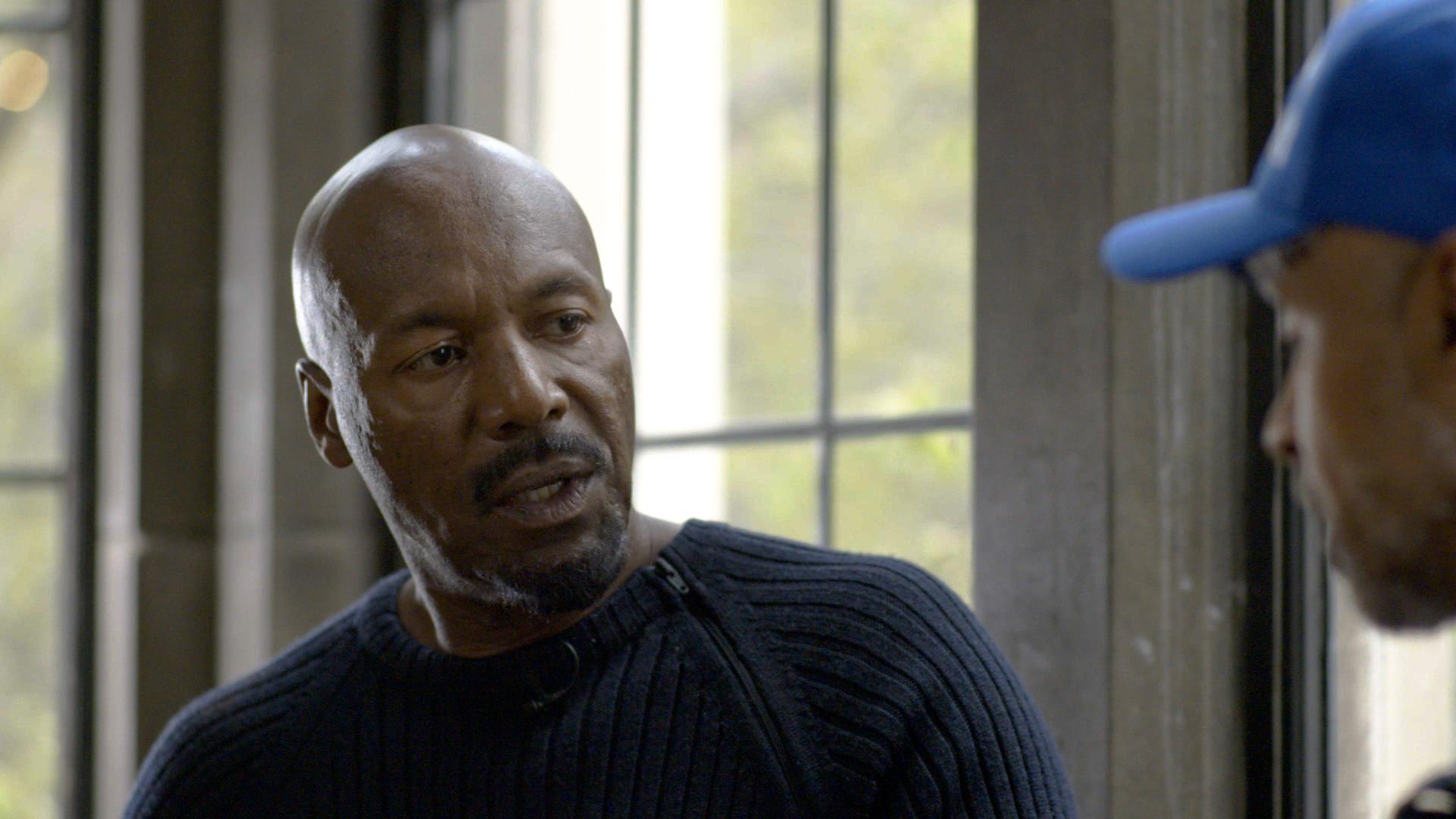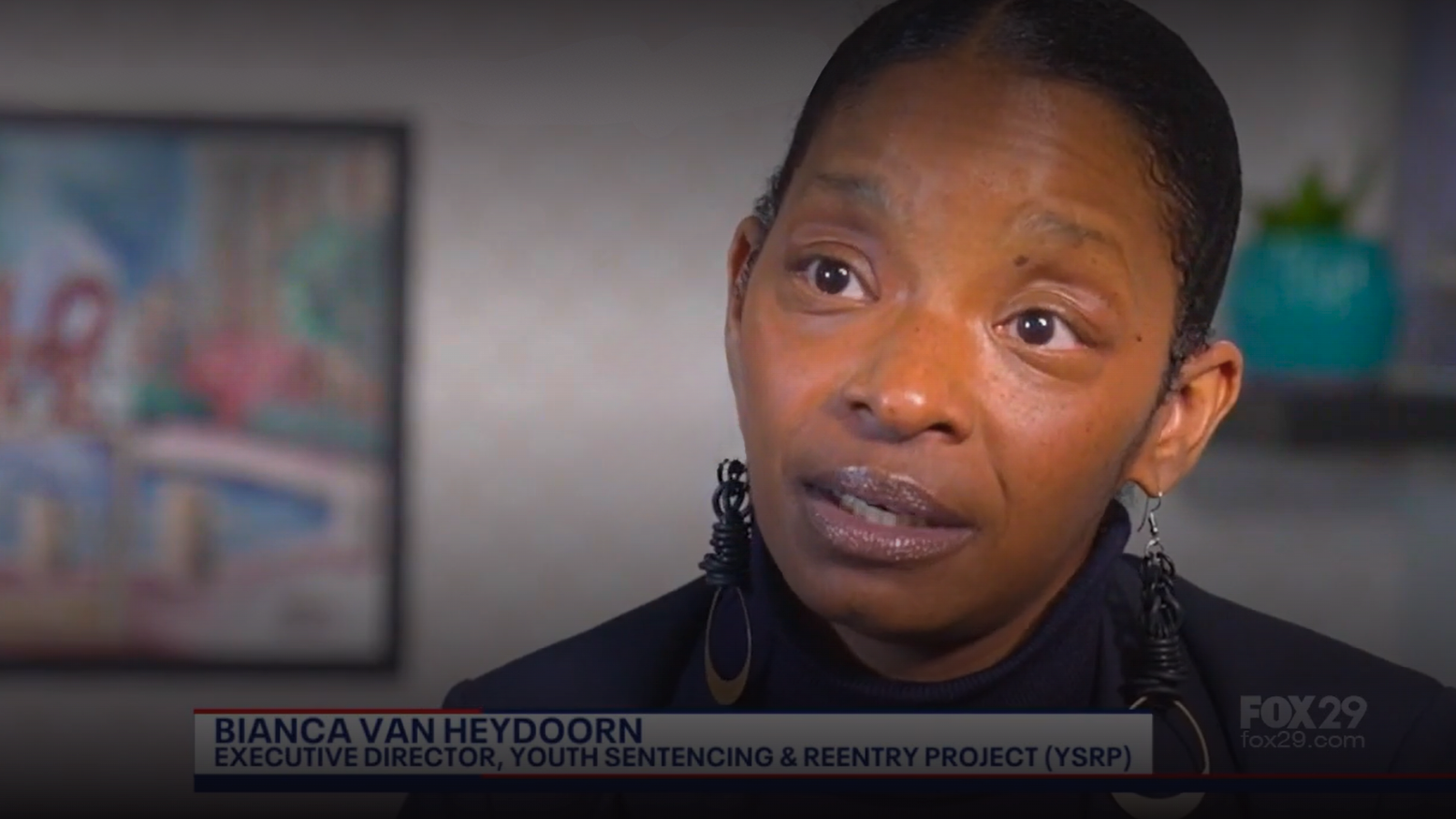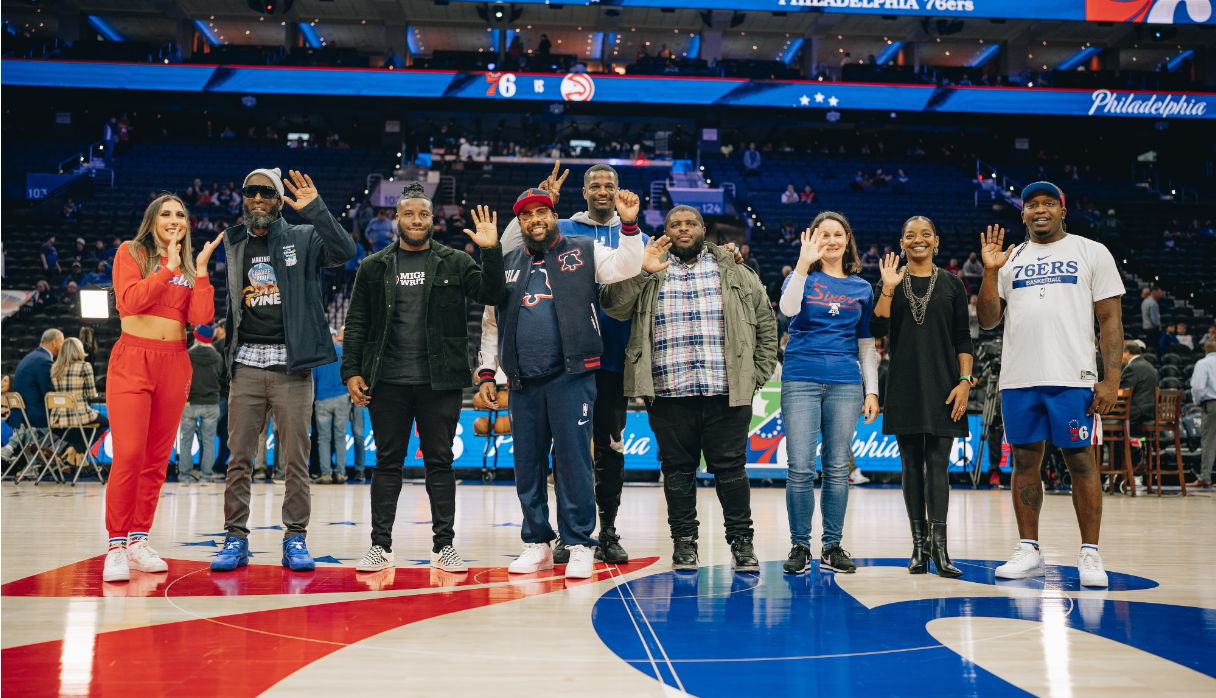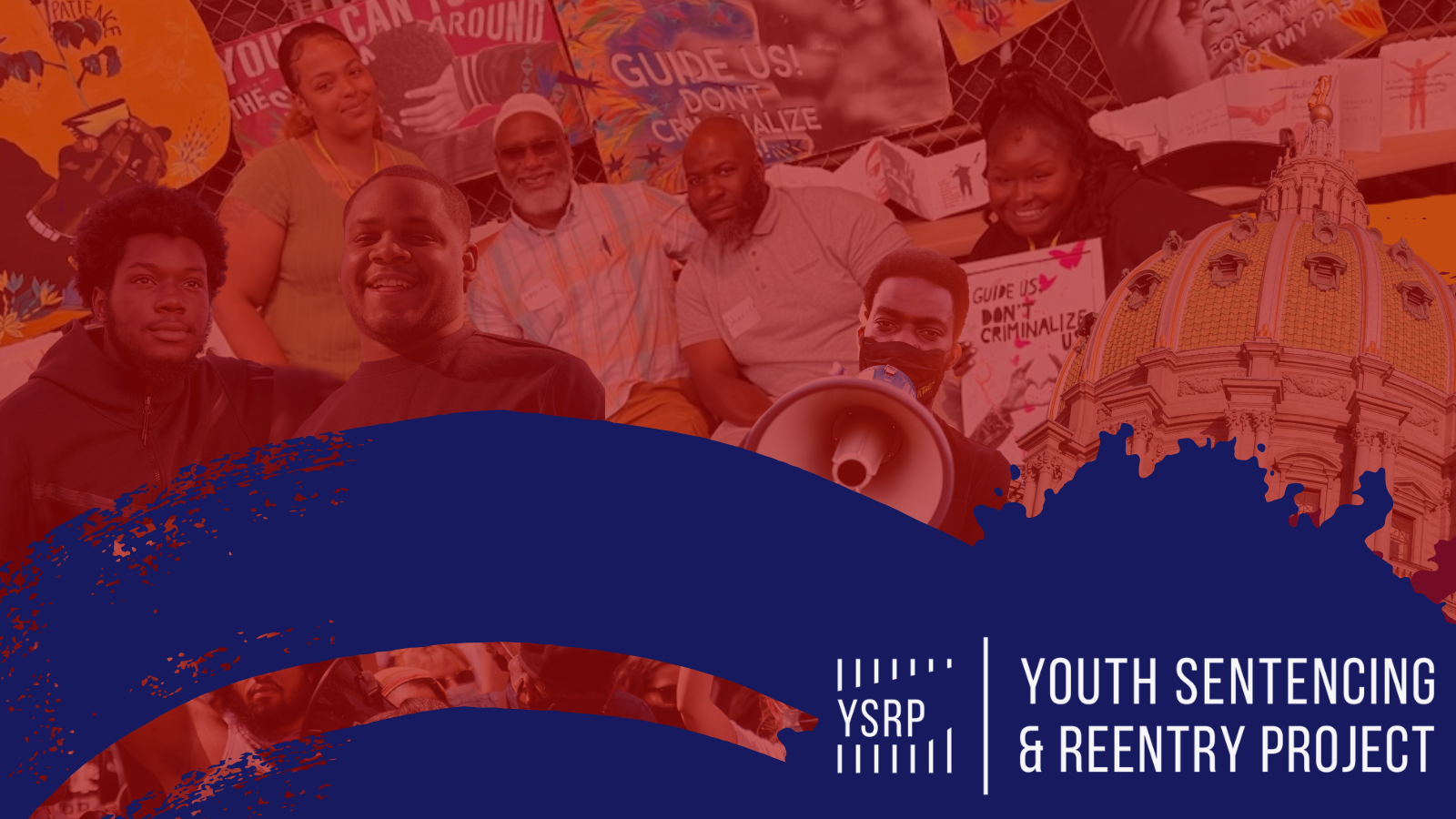In a recent episode of “Returning Citizens: Life Beyond Incarceration” featuring YSRP, host Paul Butler…
“They Call Us Monsters, Too” – Stoneleigh Emerging Leader Fellow Natasha Felder Reacts to Film
In partnership with the Stoneleigh Foundation, the Youth Sentencing & Reentry Project and Juvenile Law Center co-hosted the Philadelphia premiere of the documentary film They Call Us Monsters on Tuesday, May 9th, 2017. The film follows three boys who, when they were between the ages of 14-16, were arrested and incarcerated in a high-security youth facility in Los Angeles – and provides sharp insights into the issues they face before, during, and after incarceration.
Stoneleigh Emerging Leader Fellow Natasha Felder, currently working with YSRP on her project to enhance the advocacy provided to young women and girls prosecuted in the adult criminal justice system, recently shared her perspective on the film. In a blog post entitled “They Call Us Monsters, Too,” Ms. Felder takes a deeper look at some of the core issues presented in the film, and poses some critical questions about how gender and physical location might impact a young person’s experience as they face charges in the adult criminal justice system. Originally posted on Stoneleigh Foundation’s website, her post is included in its entirety below.
“They Call Us Monsters, Too”

As a Stoneleigh Emerging Leader Fellow at the Youth Sentencing & Reentry Project seeking to enhance advocacy provided to girls prosecuted in the adult criminal justice system, I was eager to watch the new documentary They Call Us Monsters. The film follows three boys who, when they were between the ages of 14-16, were arrested and incarcerated in a high-security youth facility in Los Angeles. While they await trial for serious offenses, the boys participate in a writing class where they create a screenplay about their own stories. The film offers viewers a glimpse inside the lives and minds of these young people, who have each experienced many challenges before ending up in perhaps the most challenging situation of their lives: facing a possible life sentence in an adult prison.
The film provides vivid insights into the issues and realities facing these youth before, during, and after incarceration. I would like to highlight a few ways in which adult incarceration can impact youth differently, depending on factors such as where their cases are tried and their gender. In particular, I was struck by how different these young people’s experiences could have been had they been from Philadelphia, or had they been girls.
WHAT DIFFERENCE DOES PLACE MAKE?
There are some key differences between California and Pennsylvania related to the incarceration and sentencing of youth in the adult justice system. While youth can still be tried and sentenced as adults in California, the state senate recently passed a bill making them eligible for release after serving at least 15 years of a sentence. However, in Pennsylvania, youth arrested and charged as adults still face lengthy mandatory minimums for second-degree homicide offenses and the possibility of life without parole for first-degree homicide offenses.
The differences between the detention facility shown in the film and those in Philadelphia are also stark. The young men featured in the film were held in a secure youth facility with amenities, including a swimming pool, and access to enriching activities, like the 20-session screenwriting class. Although they were separated from their peers, they remained in this facility until the completion of their trials. In Philadelphia, however, young people charged as adults are routinely held in an adult jail pre-trial despite their legal eligibility to be held in secure juvenile detention. Girls, in particular, are often in held in functional isolation or solitary confinement in adult jails for extended periods of time due to the low but steady number who are incarcerated as adults in the city.
WHAT ABOUT GIRLS?
The film powerfully portrays the experiences of teenage boys who are charged as adults, but what about girls? Across the country, girls are a fast-growing population in the adult court system. Yet because they remain a significantly smaller group when compared to boys, they are often overlooked and grossly underserved.
Justice-involved girls are generally more vulnerable than their male counterparts and have disproportionately high rates of past physical abuse and trauma. These and other traumatic experiences greatly impact girls’ development and are often at the core of the behaviors that result in their justice system involvement. Girls are also more likely to experience life-altering traumas such as sexual abuse, even during their incarceration, and many have to deal with the additional stresses of pregnancy and parenting while in a system designed for adult males. Girls involved in the justice system have needs that are no less urgent than those of boys but that are distinct and, more often than not, left unaddressed. This demands appropriate attention and targeted advocacy.
WHAT ABOUT ADVOCACY?
One of the most crucial elements of a functioning justice system is advocacy. They Call Us Monsters clearly demonstrates that young people involved in the justice system need strong representation to ensure that their rights are protected and their needs are met. In addition, these young clients require detailed mitigation and developmentally appropriate supports. The Youth Sentencing & Reentry Project (YSRP), my Emerging Leader Fellowship host organization, was created to accomplish these exact goals.
YSRP uses direct service, mitigation support, and policy advocacy to transform the experiences of children prosecuted in the adult criminal justice system and works to ensure a fair and thoughtful reentry for individuals who were sentenced to life without parole as children. YSRP works with lawyers to ensure that each client’s narrative, which is often muted by the facts of the offense, is heard and considered throughout the trial and resentencing processes. In addition to providing mitigation support, YSRP also connects youth, Juvenile Lifers, and their families with existing resources and programs so they have the best possible chance of success when they return to the community.
They Call Us Monsters powerfully underscores the need for resources to support sound advocacy and high-quality representation. As part of my Stoneleigh Emerging Leader Fellowship at YSRP, I am developing a toolkit to help defense attorneys address the unique issues and needs presented by girls – from their arrest to their reentry. This resource is intended to encourage more thoughtful interventions and advocacy on behalf young women, because – even though they are not provided developmentally appropriate and gender-specific services – girls in the adult criminal justice system are also called monsters.




